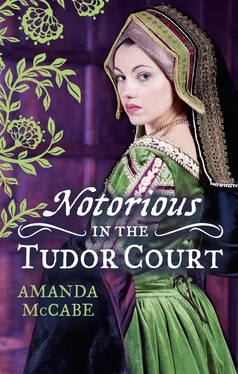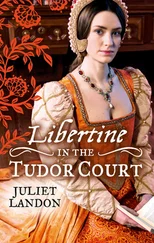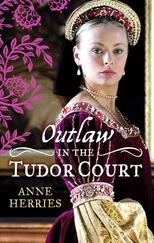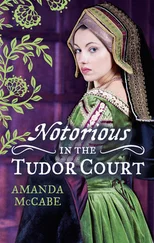“No flirtations? In a Court so full of handsome gentlemen? Come now, Lady Penelope, I cannot believe it of a pretty young lady like yourself! You must have a favourite among all these charming courtiers.”
Lady Penelope giggled, ducking her head over her untidy sewing. “I think the most handsome men are among your own party, Mademoiselle Dumas. The comte de Calonne, for instance.”
The comte? Marguerite had scarcely noticed Claudine’s husband, but she supposed he was handsome. Certainly nowhere as attractive as Nicolai Ostrovsky…
Marguerite closed her eyes against the sudden lurch of her stomach that the thought of the Russian inspired. That sick, nervous, excited feeling she hated so much. She remembered last night, the hot feeling of his body pressed against hers in the dark, his breath, his kiss on her skin. The vivid aliveness of him.
Why did he haunt her so?
“You admire the comte, then?” she said, opening her eyes and going back to her embroidery. Her stitches were now distinctly less even.
Lady Penelope shrugged. “He has such fine, broad shoulders! I would wager he is a very good dancer. Yet his wife seems so sour.”
Marguerite glanced at Claudine, who did seem pale and out-of-sorts in her ill-chosen tawny silk gown. “Many women are out of humour when they are in such a condition.”
“Perhaps so.” Lady Penelope giggled, as carefree as only a girl who had never been pregnant could be. Or a lady who could not become pregnant, such as Marguerite herself. “But it leaves their husbands in such great need of consolation!”
Marguerite laughed. That was certainly all too true. In her experience, men needed “consolation” for too many things far too often. That did not mean she had to be their consoler.
“Who do you think the handsomest man is, Mademoiselle Dumas?” Lady Penelope asked.
“I fear I have not been here long enough to judge.”
“Well, just guess, then. From the ones you have met.”
Marguerite thought again of Nicolai, of his golden hair against that red doublet. He looked like a flame, one that threatened to consume her if she got too close. “Perhaps your own King Henry.”
Lady Penelope shook her head. “He still looks well enough, I suppose, for his years. But you would have to battle for him with Mistress Boleyn, and that I would not care to try. Her tongue is as sharp as her claws.”
“I have not yet had a glimpse of this famous Mistress Boleyn. She must be quite beautiful.”
“I would not say beautiful. Not like yourself, Mademoiselle Dumas! She is—interesting, rather. She was in France, you know, when the king’s sister was Queen of France, and is much more fashionable than the rest of us.”
“I wonder when I shall see her.”
“Tonight, no doubt. They say there is to be dancing after supper, and she never misses the chance to show off her dancing skills.” Lady Penelope lowered her voice even further to whisper, “She is meant to attend on the queen, but she is usually far too busy with her own pursuits.”
“Indeed?”
Lady Penelope nodded. One of the other ladies, a pale young woman named Jane Seymour, began to read aloud from The Romance of the Rose, and everyone else fell silent. There was no chance for Marguerite to ask Lady Penelope what those “other pursuits” might be, yet she was sure she could guess. Most interesting.
She also ruminated on the comment about how Mistress Boleyn had been in France and was thus “fashionable.” Had not the Russian himself said she, Marguerite, lacked the famed French charm? It was hard to be charming in a knife fight, but she knew she had charm a-plenty when she needed it. Maybe it was time to employ it…
Nicolai reached up to test the tensile strength of the tightrope, to make sure it was taut and firmly anchored. From outside his small, hidden nook in the theatre, he could hear Sir Henry Guildford directing his assistants. Their voices, the sounds of hammering and sawing, seemed far away, as if he hid in a cave where the real world could not touch him.
If only there was such a place, a single, hidden spot of peace. Yet if there was, he had never found it in all his travels. Everywhere—Moscow, Venice, England, Holland, Spain—people were the same. Noisy and striving, beautiful and cruel, strutting about in all their vanity and longing until everything was extinguished in only a moment.
Only in friendship had he found a true haven, a reminder of grace and kindness that could be found, if one searched hard enough. Cherished it when it was discovered, like rubies and gold. Nicolai had lost his family so long ago, had wandered the world alone until he discovered a new family—Marc and Julietta, Marc’s long-lost brother Balthazar, Nicolai’s own acting troupe.
Only these bonds, so precious and fragile, could have brought him to this nest of French, Spanish and English vipers, all spitting and hissing. Yet, now that he was here, he felt some of the old excitement coming back to him. The soaring exhilaration only danger could create.
He felt restless today, filled with a crackling energy. A good fight would take that edge off, yet thus far at Greenwich everyone was behaving with disappointing civility. Except for Marguerite Dumas, of course, but she was nowhere to be seen. Probably she was safely ensconced with the other French ladies in Queen Katherine’s chamber, where she could hopefully cause very little trouble.
And she was part of this restlessness, if not its entire cause.
So, that left acrobatic tricks. Nicolai shed his fine velvet doublet, his Spanish leather boots, and, clad only in shirt and hose, swung himself up on to the rope. He balanced there on his bare feet, tall and straight, carefully centred, and took a few steps.
He was stiff from the long, idle days aboard ship and on horseback, out of shape after too much rich food and fine wine. It was fortunate the Emerald Lily was not able to overpower him last night, when he was foolish enough to ambush her in his poor condition!
But as he traversed the length of the rope, balancing on one foot and then the other, he felt his muscles warm, felt them grow pliant and supple again. His mind, too, was centred, leaving England and Marguerite Dumas and Marc’s mother behind, until there was only his body and the thin rope.
Nicolai tucked and rolled into a forward somersault, springing up to do a backflip. One, two, then he was still again, his arms outstretched.
A flurry of applause burst the shimmering, delicate bubble of his concentration. He glanced up to find Marguerite standing in the curtained doorway, clapping her jewelled hands.
He would have expected to see sarcasm written on her face as she watched him, cold calculation. Yet there was none of that. Her cheeks glowed pink, and her eyes were bright, clear of their usual opaque green ice. Her lips parted in a delighted smile.
How very young she looked in that moment, young and free and alive. If he had thought her beautiful before, he saw now he never knew what real beauty was.
“Oh, Monsieur Ostrovsky, how very extraordinary that was,” she exclaimed. “How can a human being perform such feats?”
Nicolai swung down from the rope, landing lightly on his feet. He stayed a wary distance from her, not trusting that she did not conceal a blade up her fine brown velvet sleeve. Not trusting himself to be near her, to step into the circle of that silvery glow she seemed to carry everywhere.
“‘Tis merely practice, mademoiselle, ” he answered. “Many years of it.”
“You must have a great gift,” she said. “Anyone else would have cracked their skulls open!”
“And so I did, a dozen times.”
“Yet you lived to tell about it.”
Читать дальше












